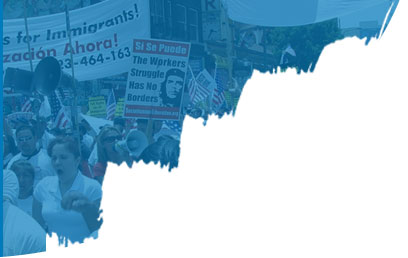
Dark Side of Halloween
For millions around the world, Halloween is a magical night that celebrates autumn and paranormal phenomena and kicks off the holiday season. It’s also a chance for adults and kids alike to become someone or something else – and binge on sweets at parties or collected during trick-or-treating. Unfortunately, it also serves as another reminder of the myriad ways in which human slavery and trafficking touch our lives.
Our biggest concerns around candy consumption are usually the effect it will have on our weight and out dental health. We certainly don’t think about the pipeline that candy travels before it ends up on the shelves of our local store. Chocolate, for example, is produced from cocoa, with sixty percent of the world’s supply coming from Ghana and Côte d’Ivoire. According to the U.S. Department of Labor, 1.5 million children, some of them as young as ten, are forced to work the cocoa harvest in these countries, often under extremely dangerous conditions. Slave labor is used in many industries, but most commonly those involving factory and agricultural work; and, while people of almost any age can be trafficked, women, children, and the poor, including migrant workers, are at particularly high risk.
The companies that produce chocolate have donated millions to the anti-slavery efforts, yet this has barely made a dent in the problem. Clearly money alone is not the answer, nor can we rely on the judicial system, as illustrated by a 2021 refusal by the U.S. Supreme Court to hear a case against U.S.-based producers of chocolate. The suit was brought by six African men who had been trafficked as children and enslaved for years on cocoa farms in Côte d’Ivoire. The reasoning behind SCOTUS’s ruling was two-fold: the men had no legal standing to sue because the enslavement had occurred outside the US, and there was insufficient evidence to conclude that the crimes had resulted from the companies’ business decisions.
The chocolate industry has long been on the radar of anti-trafficking advocates like Lela Tolajian. In 2021, Tolajian, then a junior at a California high school, launched the International Week of Action Against Modern Slavery. She also founded the International Coalition Against Modern Slavery, which has since expanded to thirty-eight countries – an incredible feat at any time and even more so considering it happened during the pandemic. It has been well-established that trafficking increased exponentially while the world was on lockdown, when people were isolated and experiencing financial crises.
Tolajian also speaks out about educating people, including youth, about trafficking, and urging governments to step up funding and policy changes to protect migrants from those who prey on them. There has been recent good news on this front, with the US Department of Justice announcing on October 26 the award of more than $90 million to organizations working to increase awareness and support survivors. Most importantly, she contends, is that consumers hold companies accountable so they will change business practices, not only in the US but around the world.
